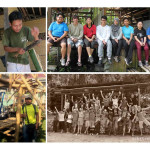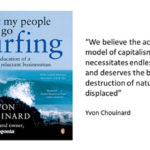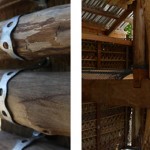The Nitty-gritty of Social Enterprise
There is no formal legal structure for Social Enterprises in Malaysia so we have done our best to create one.
What would an Architecture Social Enterprise be like?
A core team of Arkitrekkers including: myself, Sarah Greenlees, Daniele Cohen, Tan Zhen Ron and Sally Collinson began to ponder this question in 2011. There were no precedents so we had to make it up as we went along.
We started by debating our company philosophy, nicely summarised by Sarah in the 2011 Arkitrek Manifesto.
We read Muhammad Yunus, talked to contacts, researched existing models and began to learn about corporate structures. This was all very complicated to non-business people so we focussed on the Social Objective first. We learned that a Social Enterprise must have a Social Objective: so what was ours? After much debate it boiled down to: Conservation of Nature through Design.
Then, unable to put it off any longer, we waded deep into the nitty gritty of Social Enterprise
Nitty-gritty of Social Enterprise
Complementary to the philosophical ideals of a Social Enterprise are the practical and legal considerations of corporate structure. Arkitrek bases its Social Enterprise structure on the UK Community Interest Company (CIC) regulation the gist of which is:
1. There must be a genuine Social Objective (Community Interest Test), against which success can be measured.
2. The business is for-profit and profits are another measure of success and are essential to the sustainability of the business.
3. The business must have an asset lock. This means that in the event that the company is wound up, the companies’ assets cannot be distributed amongst the owners for their personal gain. Instead the companies’ assets should be transferred to another asset-locked body or not-for-profit organisation.
4. Returns to owners in the form of dividends are capped at a rate which encourages investment in the company but which precludes profiteering or excessive personal gain for the owners.
Legality of Social Enterprise in Malaysia
As there is no legally recognised structure for a Social Enterprise in Malaysia, Arkitrek has incorporated as a Private Company Limited by Shares and has modified the Object Clause of the Memorandum of Association and Regulations of Table ‘A’ with the above Social Enterprise clauses. Click the links to see the Resolutions approved by the Registrar of Companies, Malaysia.
Social Enterprise vs the Yunus Social Business
Muhammad Yunus would say that the above Arkitrek model is not a genuine Social Business because it allows dividends to be paid to shareholders. He argues that the returns on investment in a Social Business should be measured solely in terms of social gain and the feel-good factor that accrues from doing good.
My reservation about embracing Yunus’ Social Business is that if investors do not earn money from investing in Social Business, they will earn their money elsewhere. In this scenario, Social Business will only ever be viewed as a proportion of an investors’ portfolio in relation to income generating investments, which may not be socially responsible.
What’s Next?
We expect that in due course, Malaysia will follow the UK and US in creating a legal structure for Social Enterprises. We don’t know what is the right legal structure but we intend to inform and participate in the debate.







